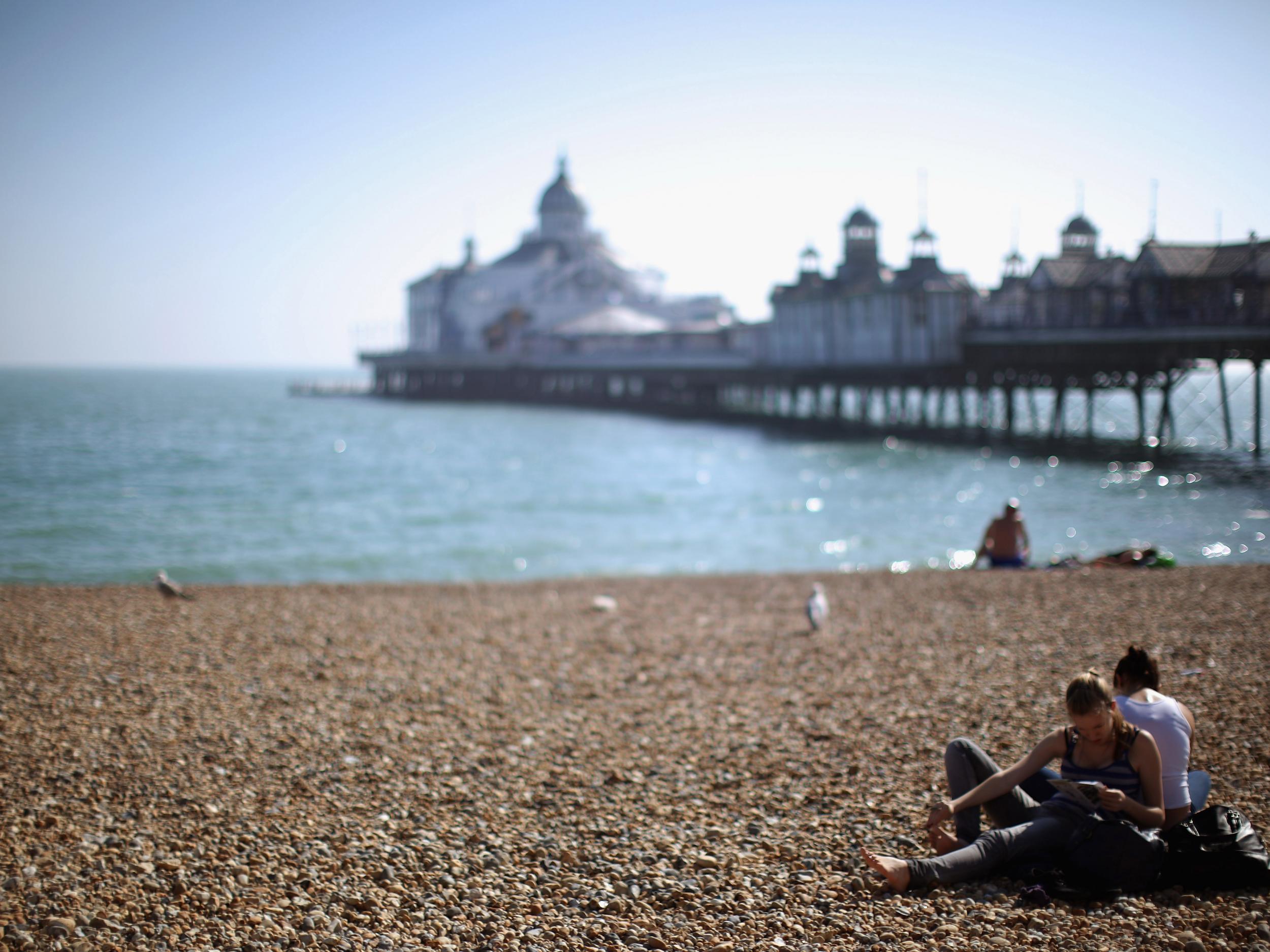UK weather: Health warnings issued as Britain set for hottest September day for 50 years
The East of England, the South East, the capital and the East Midlands have all been put on a heatwave Level 2 status from Monday evening

Your support helps us to tell the story
From reproductive rights to climate change to Big Tech, The Independent is on the ground when the story is developing. Whether it's investigating the financials of Elon Musk's pro-Trump PAC or producing our latest documentary, 'The A Word', which shines a light on the American women fighting for reproductive rights, we know how important it is to parse out the facts from the messaging.
At such a critical moment in US history, we need reporters on the ground. Your donation allows us to keep sending journalists to speak to both sides of the story.
The Independent is trusted by Americans across the entire political spectrum. And unlike many other quality news outlets, we choose not to lock Americans out of our reporting and analysis with paywalls. We believe quality journalism should be available to everyone, paid for by those who can afford it.
Your support makes all the difference.Health warnings have been issued ahead of what promises to be the hottest September day in Britain for more than 50 years.
As Britain basks in a three-day-heatwave this week, temperatures are due to peak at between 30C and 32C in some areas on Tuesday, with the balmy weather set to begin on Monday.
The sizzling temperatures will be felt most in the East of England, the South East, the capital and the East Midlands, which will all be put on a heatwave Level 2 status from Monday evening, Public Health England (PHE) said.
The Met Office declared a Level 2 heat-health alert on Monday morning, meaning there is a high chance temperatures could hit certain thresholds for at least two days and the intervening night.
PHE has urged caution over the coming days, particularly in the case of older people, young children and people with underlying health conditions.
Temperatures are expected to reach around 28C in the south east on Tuesday, while London could see temperatures of over 30C, said Paul Gunderson, Chief Meteorologist at the Met Office.
Night time temperatures are also predicted to be high with the south east dropping to just the high teens overnight.
Temperatures in London and south east could rise to the highest for a decade, with 30C temperatures last recorded in September in 2006.
If the mercury rises above 31.6C, which was reached at Gatwick on 2 September 1961, it will be the hottest September day for 55 years.
However, Tuesday will fall short of the hottest September day ever recorded, which stands at 35.6C on 2 September 1906 in Gravesend, Kent.
Dr Thomas Waite, of the Extreme Events team at PHE, said: “Because the heat is going to arrive very soon, think today about what you can do, and for those around you, to stay cool during the daytime and particularly at night.
“Much of the advice on beating the heat is common sense and for most people there’s nothing to really worry about.
“But for some people, such as older people, those with underlying health conditions and those with young children, summer heat can bring real health risks.
“To keep homes and sleeping areas cool at night remember to close curtains on windows that face the sun during the day, once the sun is off windows open them up to get a breeze and think about turning off electrical devices all over the home as they can generate unwanted heat too.”
Join our commenting forum
Join thought-provoking conversations, follow other Independent readers and see their replies
Comments